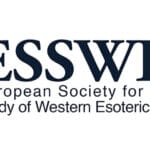

The goal of this project is to write a study of Christian Cabala in the early modern period that will provide a soundfoundation for students unfamiliar with the subject and at the same time be of interest to specialists in the history of esotericism. From a brief introduction to Jewish Kabbalah, the work then investigates, for example, the Genesis of Christian Cabala; the presence of Cabala in occult philosophy and practical magical treatises; the impact of Cabala on alchemical theory and practice; the new wave of Lurianic Kabbalah; Kircher’s Saracenic Cabala; critical responses, including Colberg’s condemnation of Cabala as ‘Fanatic Theology’ and Brucker’s ruminations in Historia critica philosophiae. Projected outcome of this project: a monograph, articles on Early Modern Christian Cabala, plus a Christian Cabala Reader, providing translations of new material from early modern books and manuscripts.

Fernando Pessoa and Esotericism The ‘New Historiography of Alchemy’ rejects a monolithic view of the subject, recognising the rich variety of approaches by which practitioners from many schools of thought competed and coexisted. In the process of challenging earlier representations of alchemy, however, there has been a reaction against late nineteenth- and twentieth-century spiritualised or psychologised interpretations of alchemical endeavour. This project investigates the relations between alchemical and religious thought in Medieval and Early Modern Europe. The focus is on the Christian West, though, as alchemical texts contain a great deal of material from earlier periods, the intended monograph and articles will include a fresh historical-critical appraisal of evidence from the middle ages and antiquity, including relevant Greek, Arabic and Hebrew sources. Research themes include: exegesis, images, vision and revelation, confessional identities, ‘spiritual’, ‘supernatural’ and ‘theosophical’ alchemy and ‘the experience of transmutation’.
As part of the University of Amsterdam, our research falls under the umbrella of the Amsterdam School of Historical Studies (ASH) at the Faculty of Humanities.
As part of the Religious Studies unit the HHP centre participates in the interdisciplinary research group on Religious Dynamics and Cultural Diversity.
The presence in Amsterdam of the famous Bibliotheca Philosophica Hermetica, situated in the Embassy of the Free Mind, and of the rich material of the Amsterdam University Library’s Special Collections (Bijzondere Collecties) provides important research facilities for our staff. The HHP’s strong emphasis on historical research of primary sources is greatly advanced by these libraries and collections.
The HHP centre is an intrinsic part of a larger international network that promotes, creates and distributes peer-reviewed academic research in the interdisciplinary field of Western esotericism.
The European Society for the Study of Western Esotericism (ESSWE) was founded in Amsterdam in 2005, the staff at the HHP centre continues to be deeply involved with the further development of this international learned society.
Our staff has also been instrumental in setting up and running the leading peer-reviewed journal devoted to Western esotericism, Aries, and the Aries Book Series – both published by Brill under the auspices of the ESSWE.
An overview of dissertations completed at the HHP centre.
Would you to like to get in contact with our researchers or get more information about research at the HHP Centre?
The Center for History of Hermetic Philosophy and Related Currents (HHP) is part of the Faculty of Humanities at the University of Amsterdam. We are committed to the highest standards of critical academic scholarship, independent of any worldview.
Visiting adress:
Bushuis / Oost-Indisch Huis
Kloveniersburgwal 48
1012 CX Amsterdam
The Netherlands
Postal adress:
Postbus 1622
1000BP Amsterdam
Email: hermetica-fgw@uva.nl
The Center for History of Hermetic Philosophy and Related Currents (HHP) is part of the Faculty of Humanities at the University of Amsterdam. We are committed to the highest standards of critical academic scholarship, independent of any worldview.
Visiting adress:
Bushuis / Oost-Indisch Huis
Kloveniersburgwal 48
1012 CX Amsterdam
The Netherlands
Postal adress:
Postbus 1622
1000BP Amsterdam
Email: hermetica-fgw@uva.nl
The Centre for History of Hermetic Philosophy and Related Currents (HHP) is part of the Faculty of Humanities at the University of Amsterdam. We are committed to the highest standards of critical academic scholarship, independent of any worldview.
Visiting adress:
Bushuis / Oost-Indisch Huis
Kloveniersburgwal 48
1012 CX Amsterdam
The Netherlands
Postal adress:
Postbus 1622
1000BP Amsterdam
Email: hermetica-fgw@uva.nl
© HHP 2022 – by Digital Marketing Agency MIAX